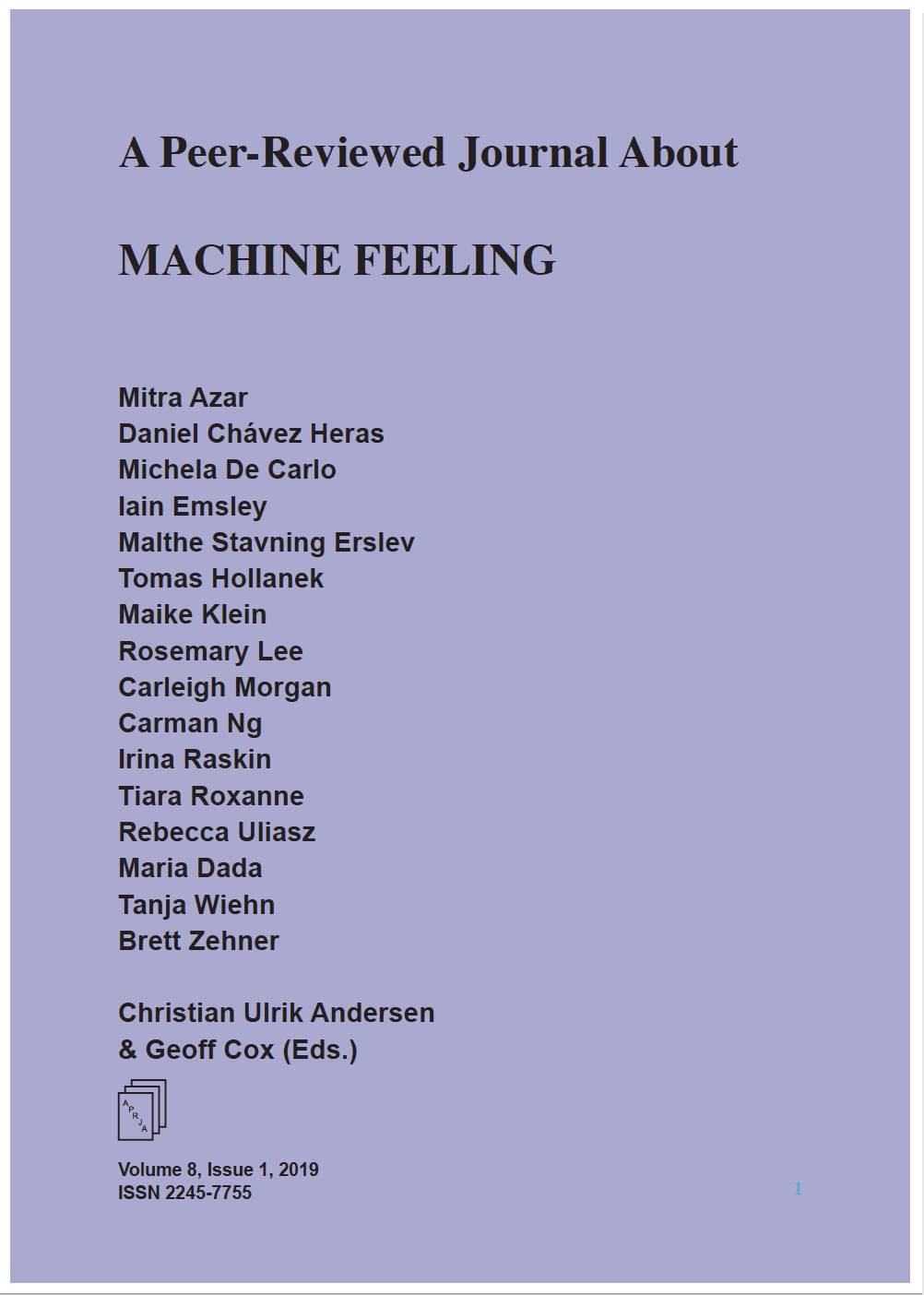Digital territory, digital flesh
Decoding the indigenous body
DOI:
https://doi.org/10.7146/aprja.v8i1.115416Abstract
Western Indigenous cultures have been colonized, dehumanized and silenced. As AI grows and learns from colonial pre-existing biases, it also reinforces the notion that Natives no longer are but were. And since machine learning requires the input of categorical data, from which AI develops knowledge and understanding, compartmentalization is a natural behavior AI undertakes. As AI classifies Indigenous communities into a marginalized and historicized digital data set, the asterisk, the code, we fall into a cultural trap of recolonization. This necessitates an interference. A non-violent break. A different kind of rupture. One which fractures colonization and codification and opens a space for colonial recovery and survival. If we have not yet
contemporized the colonized Western Indigenous experience, how can we utilize tools of artificial intelligence such as the interface and digitality to create a space that de-codes colonial corporeality resulting in a sense of boundlessness, contemporization and survival?
Downloads
Published
Issue
Section
License
Copyright (c) 2019 A Peer-Reviewed Journal About

This work is licensed under a Creative Commons Attribution-NonCommercial-ShareAlike 4.0 International License.
Copyrights are held by the individual authors of articles.
Unless stated otherwise, all articles are published under the CC license: ‘Attribution-NonCommercial-ShareAlike’.
The journal is free of charge for readers.
APRJA does not charge authors for Article Processing Costs (APC)


